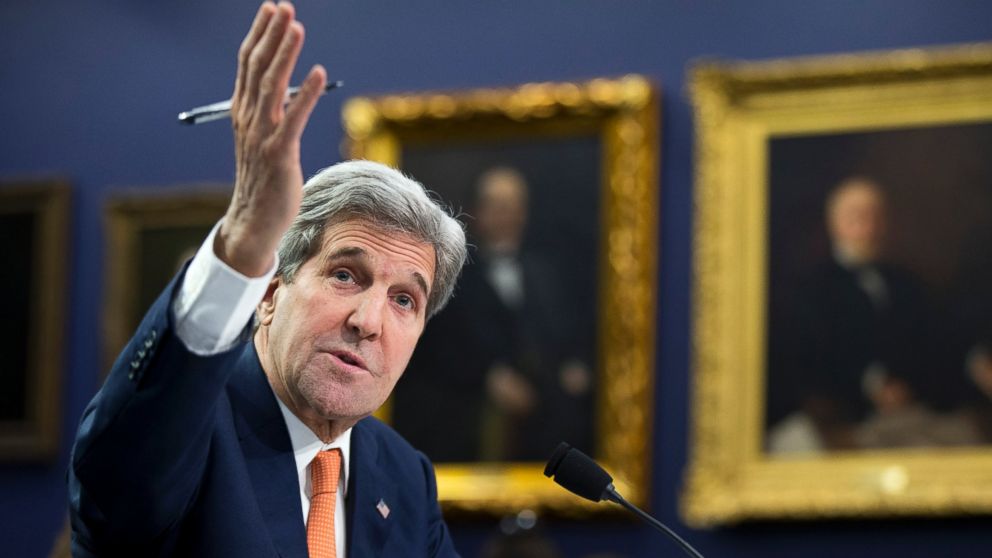Fight Against Radicalization Begins in Our Own Neighborhoods, Secretary John Kerry Says
The secretary of state said radicalization begins in our own neighborhoods.

— -- Secretary of State John Kerry spoke to city leaders from around the world today as they gathered for a workshop on how to counter violent extremism in local communities.
“There can be no doubt that the fight against radicalization begins not on distant battlefields, but in our own neighborhoods, classrooms, workplaces, houses of worship, and homes,” Kerry said to the participants gathered at the State Department.
The Strong Cities Network, which launched last September at the United Nations, aims to empower city leaders to collaborate and learn from one another as they develop strategies to prevent their community’s young people from being attracted to extremist ideologies.
Kerry told the workshop today in Washington, D.C., that 35 cities from across the globe are part of the effort and are already seeing results.
“For example, Danish cities are partnering with Amman, Beirut and Tunis to share their experience mobilizing all the tools of local government for prevention and de-radicalization,” he said.
Kerry used the story of Windsor, Canada, to show how a local community can impact the experiences of disenfranchised youth who may turn to extremism. After two young men in their twenties left Windsor for Syria to join ISIS, leaders inside and outside government made changes to show that turning to terrorism was not an option, Kerry said.
The community organized soccer tournaments, connected youth to law enforcement and held community meetings. The city also reached out to experts in other cities and had counselors, imams and parents work to identify the warning signs in youth before they committed violence.
“Windsor recognized that it is in local communities where policy touches people; where basic services can be delivered and human needs met; where families first look for security; and where boys and girls navigate the path to adulthood in search of identity, meaning and respect,” he said.
An online portal provides members access to resources so leaders can use best practices in their own communities. But Kerry said the leaders will know “far better what works in your own community.”
“We’re not pretending one size fits all,” he said.
The first global summit for this group will convene in Antalya, Turkey, in May.




